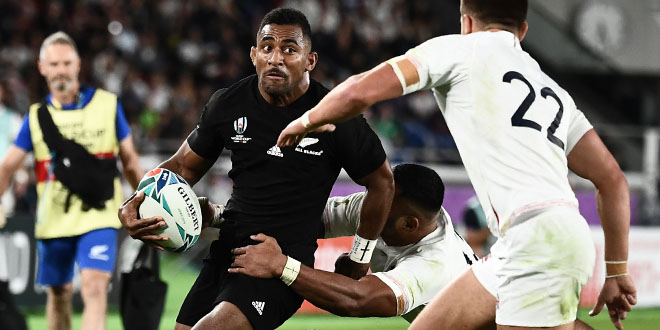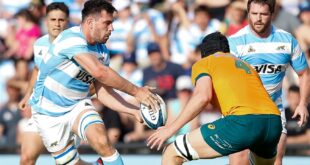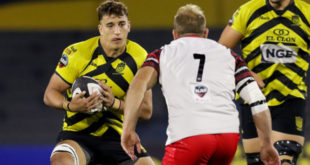New Zealand Rugby (NZ Rugby) chairman Brent Impey has let World Rugby know clearly that he and his union are unhappy with the state of affairs, direction of rugby and the re-elected Chairman, Britain’s Sir Bill Beaumont.
In a radio interview with Martin Devlin on Newstalk ZB, Impey made it clear that the Beaumont regime from the past four years was not doing a satisfactory job from a New Zealand perspective. His criticism involved not only how the sport was being administrated but also the financial structure. He noted:
“If these guys don’t get on and make change, if it’s four more years of the same, we’ll be gone.”
New Zealand voted against Beaumont in the recent World Rugby elections, preferring Agustín Pichot (Argentina). In doing so, New Zealand favored an alliance with SANZAAR unions than a cultural connection to the British candidate.
There were multiple reasons for backing Pichot over Beaumont. Impey made it clear as he stated that:
“The reason New Zealand and the other Sanzaar countries voted against Bill is there’s been no progress for a couple of years such as revenue sharing, eligibility or the rules of the game.”
All four of the British and Irish teams competing at RWC 2019 had New Zealand players. England had scrum half Willi Heinz; Ireland had center Bundee Aki; Scotland had winger Sean Maitland and back-rower Blade Thompson; and Wales had center Hadleigh Parkes. In all cases they were moved to the UK or Ireland as adults from Super Rugby.
In other words, having invested in producing players New Zealand lost adult players the UK and Ireland who were capped after three years or via the grandparent ruling.
New Zealand also had players born abroad. All four of them qualified for the All Blacks via residency. Sevu Reece moved to play rugby in New Zealand on a high school scholarship aged 17; and Shannon Frizell did so on an academy contracts. Nepo Laulala and Ofa Tu’ungafasi moved to New Zealand in their early teens.
Revenue sharing has been an issue on the table for a number of years. Yet, nothing has been done about it as Impey alluded to in the radio interview. New Zealand’s All Blacks and Maori All Blacks have both played matches in the Americas on appearance fees. However, the concern from Impey is based primarily on matches in the UK and Ireland. Samoa is an additional example of a country seeking revenue sharing.
Beaumont has made no secret of his desire to alter rules of the game. This has divided opinions around the world. Some of the examples of disputed rules are the scrum, the scrum feed, the number of replacements able to play, the 50-22 kick law and the goal-line drop out replacing the 22 meter drop out.
 Americas Rugby News Rugby news from across the Americas!
Americas Rugby News Rugby news from across the Americas!




